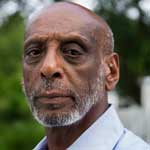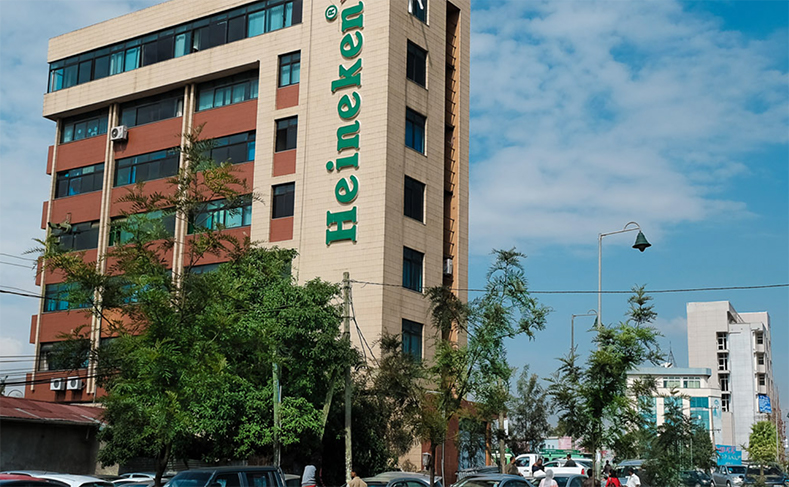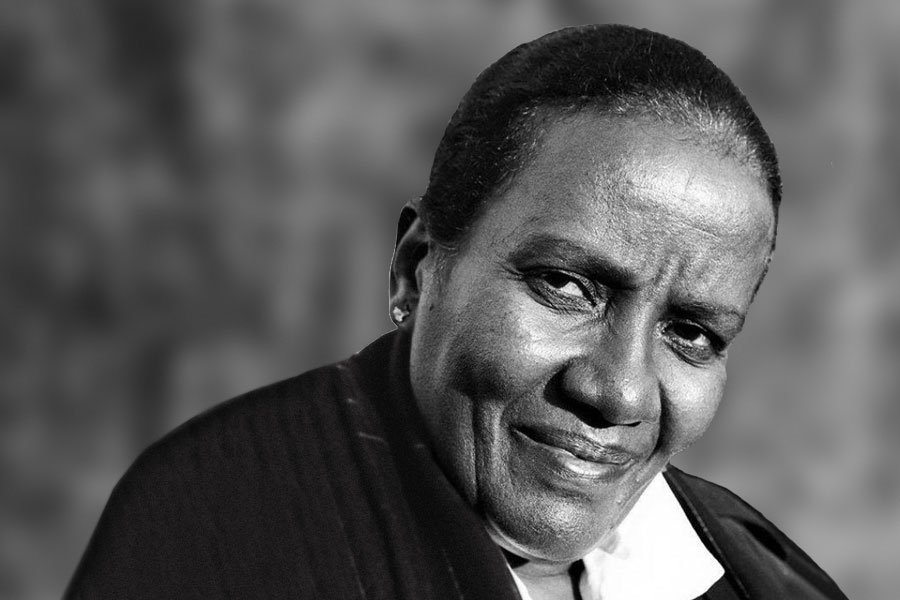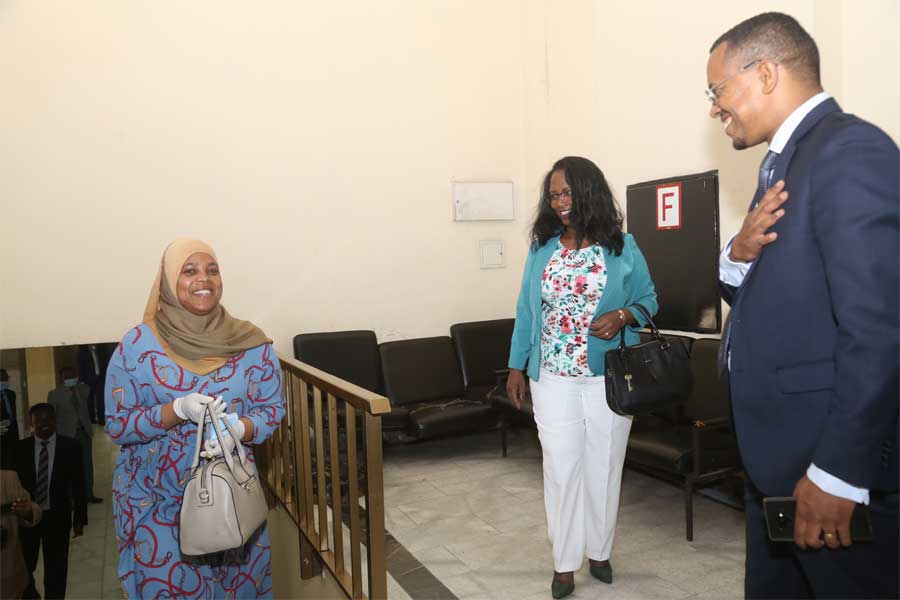
Mar 28 , 2020
By Fikru Maru
In the fight Ethiopia has against the Novel Coronavirus, coordination and contribution in terms of resources, knowledge and skills are expected of the various economic and professional classes, writes Fikru Maru (MD), (drfikrumaru@gmail.com), internist and consultant in cardiology.
The response and serious commitment by all to contribute to the resolution of the Novel Coronavirus (COVID-19) crisis is overwhelming. There is thus no better time to consider what worries us most and the recommendations we should follow.
“Hope for the best but prepare for the worst,” is a statement that we all have to think about.
The World Health Federation (WHF) has correctly warned that the poorest countries can become the most and worst-affected countries. In light of this, there are two important points that need to be brought to our attention.
It is not a matter of “if” but a matter of “when” the COVID-19 virus will severely damage countries such as Ethiopia.
The prevention methods taken until now might not be enough, but are they even the correct ones? What more can be done, and what should be done in the immediate future?
International coordination and measures to fight this pandemic have become a low priority. Now, the focus is on national measures. Each country is taking Draconian steps.
Rich countries such as France, United States and Germany are using every resource and capacity they have to accommodate what is needed to stem the pandemic. France has ordered the military not only to patrol the streets but has also ordered factories to produce drugs like Paracetamol, anti-septic, gloves and face masks. With social distancing being one of the measures recommended to prevent the spread of the virus, workers in many of these countries are allowed to work from home or take leave with pay.
Ethiopia should take bold actions based on verifiable data and tap into immediate war-time resources dedicated to the virus pandemic.
Can Ethiopia take the kind of measures taken by the developed countries?
Not entirely. Some similar measures are taken, and more might even be taken. The idea that Ethiopia has a young population that will be less affected by the virus should be examined critically. This is a dangerous argument, which is not constructive and will prevent correct measures from being taken.
New statistics arrive every day revealing that even small children are being affected and young people have started to die as a result of COVID-19. Our arguments and information should be correct, evidence-based and critically analysed. As much as there are good things provided by social media, it also has the capacity to be destructive, confusing the facts and putting society in jeopardy.
Some are not only negative but intended to provoke panic, fatalism and depressive behaviour among the public. At the time of this horrific situation, acting in a morally correct, ethically acceptable and responsible way is the least one is expected to do.
We should also make sure that the actions and measures taken should not be copied and pasted, haphazard and without due consideration of the expected outcome and possible negative consequences to follow. Ethiopia's intellectuals, economists, natural and social scientists, researchers and people with skills will save lives. This golden opportunity to mobilise and appeal to them should be the order of the day. Research, clinical studies and data collection done by Ethiopians will help enormously and also define the future of the country. Knowledge and experience are the foundation and springboard for a country not only to prosper but also to survive this crisis. Isolating and discriminating against these is dangerous, destructive and tantamount to annihilating them, which the country cannot afford.
We should also ask if the country has plans to develop an exit strategy for after the pandemic.
When are the schools to be opened? What will happen to the missed school time? How will the economic burden on individuals, companies and the country be tackled?
These are serious matters that require experts to work on and provide a solid roadmap.
It is also time to consider the World Health Organization’s advice, which is to test every one suspected of having acquired the virus. This is crucial. The testing kit is not available as needed in Ethiopia, the number of trained health workers is inadequate and the infrastructure is not sufficient and organised to do the job. These are hard facts but should not be the argument for not testing suspected individuals.
Countries such as Sweden are not conducting tests for everyone. Instead, the authorities are strongly recommending people stay at home if they think they have the symptoms of the infection. The consequences are that individuals become unproductive. It paralyses the workforce and economic collapse becomes a possibility.
Sweden is rich and can afford to feed its citizens, maybe not forever, but for a long time. Ethiopia cannot afford to take such measures. It needs the workforce to be engaged daily. But testing can give the opportunity to assure individuals to continue to accomplish their normal tasks, reveal where the virus is and direct the fight to the correct places.
“One cannot fight a wildfire blindfolded,” as it has been said.
In this fight that we have ahead of us, what is expected of the various economic and professional classes, such as health workers, scientists, researchers, industrialists and wealthy people?
Health workers are on the front line, expected to fight the invisible.
We know the safety drill during commercial flights: “In case of emergency, put on your own oxygen mask before helping others.”
Similarly, in this situation, protecting ourselves before helping the sick is crucial. We should read and understand the guidance, be vigilant and be sure to act in ways that are proven to be effective by evidence. We are taking unprecedented risks and making heroic sacrifices.
Containment is the best preventative measure to be taken, but it will be impossible to prevent all cases. People are and will be infected, and our job is to save lives. Ask loudly for resources, seek guidance, learn from experiences and adapt to the different situations we find ourselves in.
Teamwork gives the best outcome. We have to combat anxiety, fear and panic and use simple, proven methods to give our service well.
What of scientists and researchers?
Our knowledge is mostly based on research conducted by non-Ethiopians, but the data and materials are ours. Let us try to change that. Organised data collection should be the source of our own research and clinical studies. This will be used in creating and developing measures suitable for our situation and conditions. We should strive toward a day when research is published that lists Ethiopians as authors and not merely the data collectors.
To the young Ethiopian researchers, particularly in the health domain, intensivists, anesthesiologists, epidemiologists, doctors with knowledge of infectious diseases, this is the moment to leap forward to be seen, recognised and given respect. They have the dedication, passion and determination to make history. They should be the ones to become game-changers. They should not expect the known scientists and researchers to offer us the front seat; they have to take it. It is our data, our people and our country.
The industrialists and wealthy people also have a major role to play.
No matter from where or how one acquires wealth, at a time of crisis of this magnitude, there is the obligation to help our fellow Ethiopians. The virus affects the wealthy just as much as it does the destitute. In Lombardi, Italy, an epicenter for the disease, both the rich and the poor have become the victims of the disease. In Europe, those who are infected and the large proportion of deaths are people who were on a winter ski vacation in northern Italy. But it has already found its way to the poor. This is an enemy that does not discriminate. It affects all.
Those with money to spare should support the health sector. Stretch a helping hand out to our young and ambitious scientists who can make a difference, pave the way for the future and lay a foundation for knowledge and skills to flourish in Ethiopia.
But it is from the government that much more will be expected. Early and drastic preventive measures, gaining the trust of the public by providing accurate information and accurate guidance are where it can best play a leading role.
China and Singapore, two countries hit early by the virus, have successfully won the battle, if not the war. China is currently ending the quarantine of Wuhan city inhabitants.
Early preventive measures were taken. Resources are abundant, and healthcare was available to almost all who were affected. But the most important aspect of this success has been the trust the citizens of these countries have had for their governments. China is not a democratic country, but people are made to obey government instructions, orders, laws and proclamations. Singapore is a semi-democratic country, but the people have a tremendous trust in their government.
Hopefully, Ethiopia chooses the latter route. The measures taken by the government should be well-articulated and documented, and evidence-based information must reach the people. In return, the authorities must strive to convince the people to trust and rely on the government and its health institutions.
Indeed, the stakeholder in this battle is not only the government but society as a whole. Identifying, organising and specifying the assignments and tasks to be carried out is imperative. If everyone plays their role and takes it seriously, we will overcome this crisis with minimum damage.
Ethiopians are known for defeating external aggressors. Our ancestors showed us what it means to win a war. This is a different enemy, but it offers an opportunity to show the world once again that we are up to the challenge.
Let us unite and hold hands together. Gather our thoughts and minds and act responsibly. This is a war, and it needs strong and determined leadership. Our government cannot do it alone. Every one of us needs to contribute our part and, together, we shall prevail.
PUBLISHED ON
Mar 28,2020 [ VOL
20 , NO
1039]


Covid-19 | Mar 31,2020

Commentaries | May 31,2020

Obituary | Mar 21,2020

Radar | Mar 28,2020

Viewpoints | Nov 30,2024

My Opinion | 131661 Views | Aug 14,2021

My Opinion | 128023 Views | Aug 21,2021

My Opinion | 125986 Views | Sep 10,2021

My Opinion | 123610 Views | Aug 07,2021

Dec 22 , 2024 . By TIZITA SHEWAFERAW
Charged with transforming colossal state-owned enterprises into modern and competitiv...

Aug 18 , 2024 . By AKSAH ITALO
Although predictable Yonas Zerihun's job in the ride-hailing service is not immune to...

Jul 28 , 2024 . By TIZITA SHEWAFERAW
Unhabitual, perhaps too many, Samuel Gebreyohannes, 38, used to occasionally enjoy a couple of beers at breakfast. However, he recently swit...

Jul 13 , 2024 . By AKSAH ITALO
Investors who rely on tractors, trucks, and field vehicles for commuting, transporting commodities, and f...

Jun 28 , 2025
Meseret Damtie, the assertive auditor general, has never been shy about naming names...

Jun 21 , 2025
A well-worn adage says, “Budget is not destiny, but it is direction.” Examining t...

Jun 14 , 2025
Yet again, the Horn of Africa is bracing for trouble. A region already frayed by wars...

Jun 7 , 2025
Few promises shine brighter in Addis Abeba than the pledge of a roof for every family...

Jun 29 , 2025
Addis Abeba's first rains have coincided with a sweeping rise in private school tuition, prompting the city's education...

Jun 29 , 2025 . By BEZAWIT HULUAGER
Central Bank Governor Mamo Mihretu claimed a bold reconfiguration of monetary policy...

Jun 29 , 2025 . By BEZAWIT HULUAGER
The federal government is betting on a sweeping overhaul of the driver licensing regi...

Jun 29 , 2025 . By NAHOM AYELE
Gadaa Bank has listed 1.2 million shares on the Ethiopian Securities Exchange (ESX),...